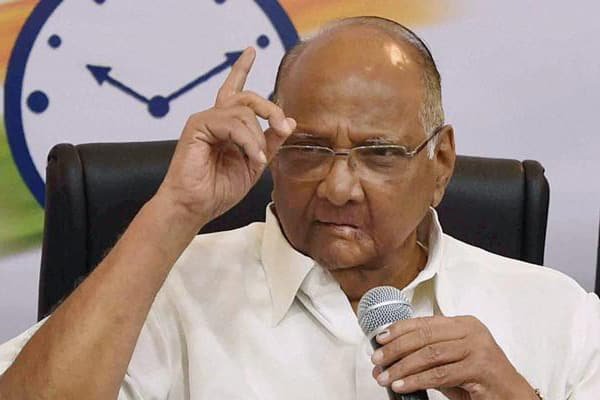Nationalist Congress Party (NCP) leader Sharad Pawar has extended his support to Delhi Chief Minister Arvind Kejriwal, alleging that the central government is leveraging its power to intimidate leaders with dissenting political views. Pawar, addressing a gathering of party workers, underscored the similarity in the Enforcement Directorate (ED) summonses sent to Jharkhand Chief Minister Hemant Soren, expressing apprehensions that Soren might also face arrest in the future.
Pawar pointed out that Arvind Kejriwal, serving as the Chief Minister of the national capital, received ED notices, and members of the Aam Aadmi Party (AAP) were previously incarcerated. He went on to claim that orchestrated measures were underway to facilitate Kejriwal’s arrest. Pawar, referring to the political landscape of the last decade, asserted that voters had chosen Kejriwal due to his clean image, emphasizing the irony of such a leader facing legal troubles.
The NCP president raised concerns about the potential arrest of Kejriwal, stating, “It will not be surprising if he is arrested.” Pawar contended that these actions suggest a deliberate effort to discourage leaders with dissenting political views through the misuse of power.
Arvind Kejriwal, who also serves as the national convener of the AAP, recently opted not to comply with three ED summonses related to a money laundering case associated with an alleged liquor scam. The said liquor scam was connected to the excise policy of 2021-22, which was subsequently annulled by Kejriwal’s government last year. The decision to revoke the policy was made following a recommendation by Delhi Lieutenant Governor VK Saxena for a CBI investigation into “lapses and irregularities” in its execution.
The ED’s summonses to Kejriwal have sparked questions regarding the political implications and alleged misuse of investigative agencies for political gains. Pawar’s expression of solidarity with Kejriwal underscores broader concerns within the political arena about the instrumentalization of power to target leaders who espouse differing political perspectives.
As Kejriwal navigates the legal scrutiny, the ongoing narrative surrounding the ED summonses continues to draw attention, with leaders from various political spectrums offering their perspectives on the matter. Pawar’s stance mirrors a prevailing sentiment in certain political circles that the central government is deploying investigative agencies strategically to target opposition leaders. This has led to heightened concerns about the overall health of democratic institutions in the country.
In the larger context, the use of investigative agencies to pursue political objectives has been a recurring theme, raising questions about the autonomy and impartiality of these institutions. Critics argue that such actions could undermine the democratic fabric of the country, eroding public trust in the fairness and independence of law enforcement agencies.
The political dynamics surrounding Kejriwal’s situation also highlight the challenges faced by leaders critical of the central government’s policies. The ED summonses, seen by some as a tool to exert pressure on opposition figures, contribute to an atmosphere of political tension and scrutiny.
Pawar’s decision to speak out against the perceived misuse of power and offer support to Kejriwal aligns with a broader discourse on preserving the democratic values and institutions that form the cornerstone of India’s political landscape. As legal proceedings unfold, the political ramifications of such cases will likely continue to reverberate, shaping the narrative around the intersection of politics, governance, and the rule of law.














